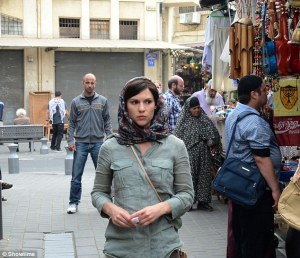
Plot is arguably one of the most important elements of fiction writing – from it stems, the characters, the mood, the pace. It sets the scene for the whole tone of a fiction novel, so it’s important to get it right. When you’re writing crime or thriller novels, it is absolutely key, and there are ways of raising the stakes to keep your reader hooked.
Here are a few that I noticed, while watching the BBCs recent new thriller, Vigil. If you haven’t seen it, you can watch it on catch-up. As a writer, it’s difficult not to consider plot, when watching high-tension drama on television and and in Film!
- Put your characters in a challenging environment or physical danger.
- Introduce vulnerabilities and character flaws.
- Create secondary characters to add new tensions to the plot.
- Allow tension to ebb and flow.
- Create obstacles and conflict between characters.
- Keep raising the stakes.
- Make the viewer (reader) ask questions.
- Create internal and external conflict.
- Leave things unresolved until close to the end.
- Remind the reader of the stakes.

The plot hinges on a Detective Chief Inspector Amy Silva (played by Suranne Jones). DCI Silva works for the Scottish Police Service and is sent to HMS Vigil, a Trident nuclear submarine, by helicopter for three days, at first, to investigate. Shortly after the mysterious disappearance of a Scottish fishing trawler, a member of the crew on Vigil is murdered, and DCI Silver has been sent to investigate. The series takes viewers on a journey into a world of submarine warfare and security threats.[Skip ahead to the next paragraph to avoid a plot spoiler] Having lost her husband in a car crash, where the car is submerged in water, Amy manages to rescue only her daughter. She suffers from flash-backs, depression and anxiety, for which she is taking medication.
Much like Carrie, in Homeland (a highly-skilled, but bipolar CIA operative), it’s this vulnerability that makes Silver so likeable and her achievements all the more impressive as the plot unfold (see no. 2 in raising the stakes). Finding character flaws and vulnerabilities draws the reader to the character. The human need to connect through vulnerability is best illustrated in Brené Brown’s TEDxHouston Talk, The Power of Vulnerability. In this twenty minute TED talk, she describes vulnerability as uncertainty, risk and emotional exposure, but says that vulnerability is not weakness; it’s our most accurate measure of courage. It’s this courage, despite character flaws and vulnerabilities, that makes the best protagonists so appealing and keeps viewers and readers hooked.
DCI Silver’s investigations, along with her team on land, create conflict between the police, the Royal Navy and MI5 (see no.5 in the list of raising the stakes). She is in a challenging physical environment (see no.1) in a confined space, away from her daughter, her normal routine and recent partner, DS Kirsten Longacre (Rose Leslie), leaving her conflicted.
While there were a few plot holes and inconsistencies in places, it was a gripping series, with tensions ramping up towards the end. The finale provided both the tension and resolution that viewers were hoping for, with some impressive redemptive qualities.

You can find out more about plot, tension and story arcs, from several of my other posts (links below):
Narrative Arc: Shaping Your Story (one of my most read post’s with almost 15,000 views)
Plot, Characters, Homeland, and What You Need to Achieve to Keep Readers Engaged
What we can learn from Beauty and the Beast About Plot, Tension and Obstacles

